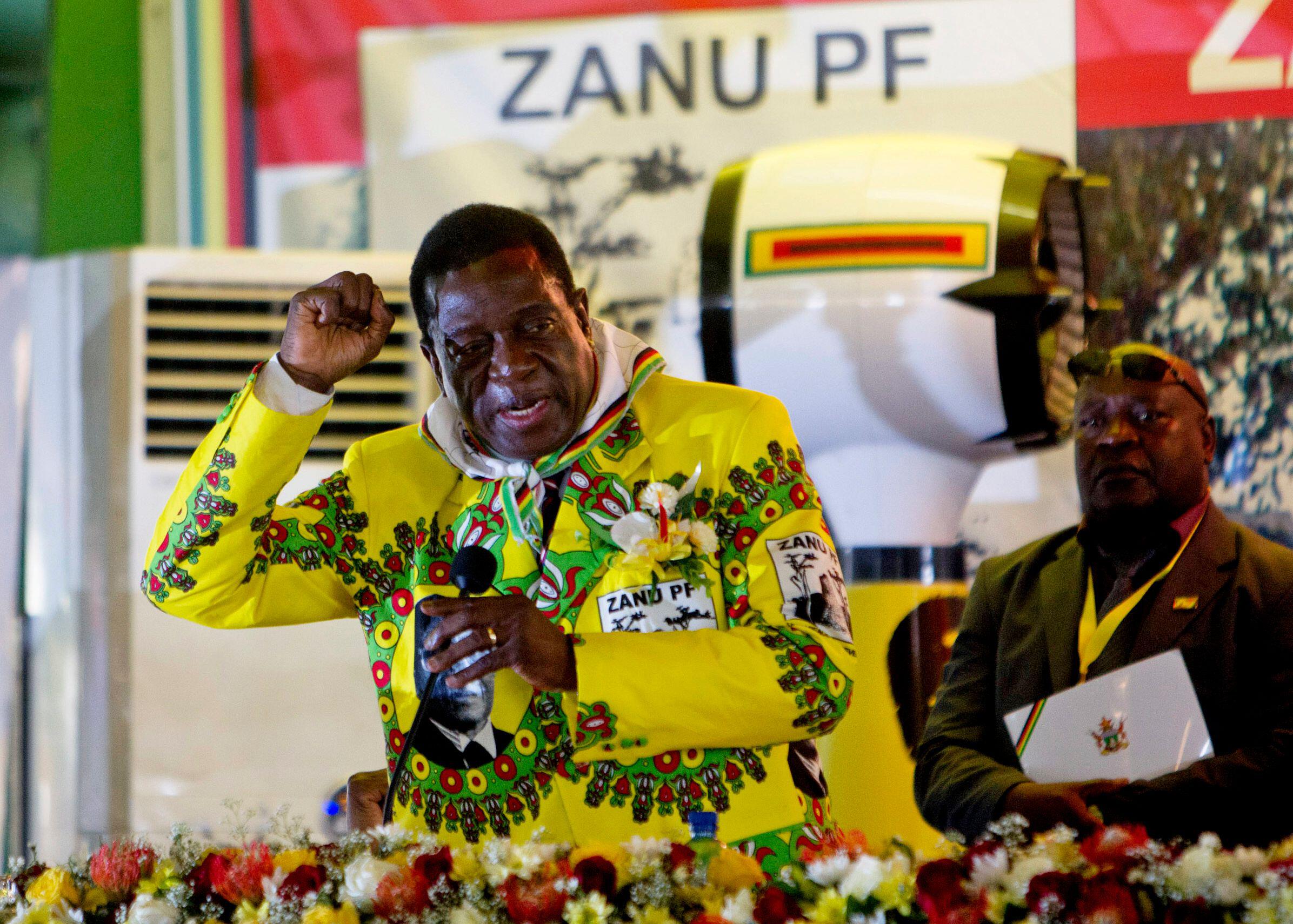Zimbabwe’s brutal regime, under President Emmerson Mnangagwa, is using social media, particularly X, to smear and silence mostly female anti-government political activists and human rights defenders in the country.
President Mnangagwa’s army of paid pro-government social media trolls is known as the Varakashi —propaganda stormtroopers—with some using names of prominent people to open fake X accounts without their knowledge. One ghost X account uses the name of Zimbabwe’s former vice president, Joice Mujuru. Even President Mnangagwa’s spokesperson, George Charamba—who is also a senior government employee —runs two toxic ghost X accounts—@Jamwanda2 and @dhonzamusoro007—which he uses to attack and post completely fabricated and malicious information about female human rights defenders and political activists in Zimbabwe. The first of these accounts was suspended in 2022 but was reinstated after Elon Musk acquired Twitter and renamed it X.
In the past year there has been a proliferation of toxic X accounts in the country and they are flourishing. At times, these X accounts incite physical and sexual violence against female political and human rights activists. In one post, a ghost X account threatened a prominent human rights activist that “[I’m] waiting to rape you.” The post drew outrage from X users, and it was later deleted.
And in a study published in 2023, Constance Kasiyamhuru from the University of Johannesburg in South Africa said the Varakashi in Zimbabwe operate mostly on Twitter/X to “shut down” the political opponents of the governing Zanu PF party.
“Through trolling, name-calling, threats, mocking, mobbing, labelling, ridicule, casting aspersions, delegitimation, disinforming, and other strategies, Varakashi seek to regulate, censure, and ‘discipline’ anti-musangano [anti-ruling party] online discourse,” Kasiyamhuru wrote.
Tendai Ruben Mbofana, a Zimbabwe based social justice advocate and writer, said the systematic deployment of online trolls—particularly targeting female human rights defenders and political activists—has become a chilling hallmark of repression in Zimbabwe.
“These smear campaigns are not just personal attacks; they are part of a broader strategy to delegitimise our work, intimidate us into silence, and discredit our credibility in the eyes of the public,” Mbofana said.
He added that the abuse often takes on a deeply misogynistic tone, laced with gendered insults, threats of sexual violence, and false accusations designed to shame and isolate women.
“It creates a climate of fear and forces many women out of digital spaces that should otherwise be used to amplify their voices and advocacy,” he said.
Sophia Gwasira, who was elected as the first female mayor for Mutare City in eastern Zimbabwe in August 2023, told Index on Censorship that the fear of being smeared and attacked on social media platforms by Zanu PF social media trolls was forcing many women to abandon opposition politics and activism. She said social media platforms were no longer safe places for women in opposition politics in Zimbabwe, with the attackes affecting both them and their families.
“It’s affecting us not only physically but emotionally too. We are trying to find ways of countering these attacks. But currently we don’t have any protection from our own political parties or from the government,” Gwasira said.
But Gwasira said she will continue to fight for the people and, given the opportunity, she would contest the general elections slated for 2028. Gwasira and many other opposition mayors, MPs and councillors were recalled in late 2023 after her party, the Citizens Coalition for Change (CCC) was hijacked by President Mnangagwa’s ruling party Zanu PF through its proxy, Sengezo Tshabangu. This forced the CCC leader Nelson Chamisa to abandon the opposition party and he took a sabbatical from party politics in January 2024.
Promise Mkwananzi, spokesperson for opposition party Citizens Coalition for Change—which is still loyal to former leader Nelson Chamisa— told Index on Censorship that as opposition, they have been identifying and exposing some of these social media ghost accounts and to direct their members to counter the toxic narratives on X.
“It must be noted also that these trolls are paid using taxpayers’ money to denigrate women and bully voices of the alternative on social media,” Mkwananzi said.
But Mkwananzi was quick to add that his party will continue to fight and mobilise people for a better Zimbabwe.
“We are also educating our members to be strong and to remain focused on recruiting mobilising, educating and radicalising the base.”
Although women are the main target, men critical of the ruling party are also targeted.
“In my own experience, I have faced repeated, coordinated attacks on X, particularly from anonymous accounts believed to be run or supported by high-ranking government officials, including the president’s spokesperson. These attacks are aimed at silencing dissent and discouraging public engagement. But we will not be silenced. If anything, these attacks only reinforce the urgency of our work,” said Tendai Ruben Mbofana Mbofana.
When President Mnangagwa seized power through a military coup from Zimbabwe’s long-time dictator, Robert Mugabe in 2017, President Mnangagwa promised sweeping reforms; economic and political reforms, including upholding human rights and rule of law in the country.
However, Zimbabwe has become worse under President Mnangagwa than Mugabe; political opponents to Zanu PF have been brutalised, tortured and killed and corruption is widespread.
A recent report by Human Rights Watch said authorities in Zimbabwe have continued to restrict civic space and the rights to freedom of expression, association, and peaceful assembly and the human rights, political and economic situation in Zimbabwe continues to deteriorate.
Under the current constitution, President Mnangagwa’s term of office—his second and last term—ends in 2028 but his party is now planning to amend the constitution to keep him in office till 2030. Meanwhile, Mnangagwa’s Varakashi are flooding social media with messages in support of the extension of his term and touting his “achievements” so far.






